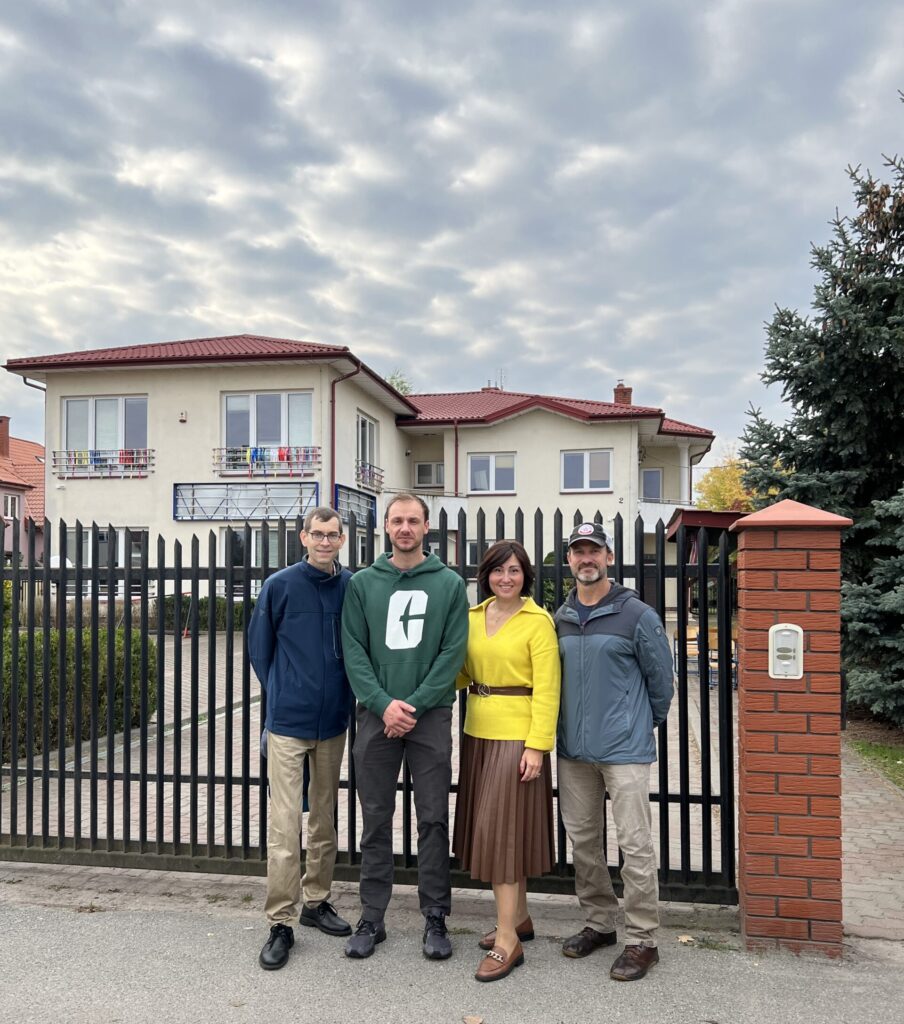Some friends I met recently here in Poland invited me to accompany them this morning on a visit to a new private primary school in Warsaw. The school, called the Children of Ukraine Education Center, was founded by two Ukrainian women who brought their children to Warsaw when Russia invaded Ukraine. One of the women, Olesya Kovalchuk, had worked for many years in the educational publishing industry in Ukraine, and the other, Natalia Voloshko, was the proprietor of a music school in the Ukrainian city of Kharkiv. When these two women saw the plight of recently displaced Ukrainian kids living in Warsaw — crowded Polish schools, difficulty adjusting to the Polish language, homesickness, apathy and so on — they decided to start a private school to address these issues. They rented a large villa home in a residential neighborhood in the outskirts of Warsaw and persuaded the landlord to help them with renovations needed to turn the residence into a schoolhouse. They recruited teachers and coordinated with the Ukraine ministry of education to provide students with the standardized Ukrainian primary school curriculum, and sought out grants and other sources to fund the project. Today, little more than six months since they launched the endeavor, the school has over 130 students.

Natalia and Olesya also organized special curriculum offerings such as Polish and English language lessons, and music and art lessons which are available every afternoon after the standard school day is over, for all interested students. Currently, about 90 of the students participate in these special offerings. The school also occasionally organizes weekend or holiday outings or similar extracurricular activities.
Olesya and Natalia’s vigor and determination is amazing. These energetic social entrepreneurs are not letting the Russian invasion destroy their vision for the future of the Ukrainian youth they serve. On the contrary, they are doing everything they can think of to accentuate every possible positive nuance or silver lining they can identify.
For example, they have had good success welcoming volunteers to tutor the Ukrainian kids in the Polish and English languages. As a consequence of the Russian invasion, the students at the Children of Ukraine Education Center are now gaining fluency in two important international languages, in addition to preserving their heritage language, Ukrainian.
On the other side of the coin, these kids are no longer learning Russian, which for most of the 20th century was perhaps the dominant language spoken in much of Ukraine. So, whereas their parents are generally able to easily understand and perhaps assimilate messaging from the Russian news media, the kids currently studying at the Children of Ukraine Education Center — and perhaps similarly thousands of other Ukrainian children who have been displaced by the Russian invasion — will grow up not able to understand Russian, and therefore incapable of being directly swayed by Russian propaganda. It seems highly ironic that, because of the massive exodus of young children from Ukraine resulting from the Russian invasion, regardless of the outcome of the war on the ground, Russia may actually be facilitating the creation of a significant Ukrainian diaspora, which will have excellent ties to much of the world, will still have strong ties to Ukrainian heritage, but will be largely alienated from Russia. Perhaps before making the decision to invade, the Russian war hawks failed to take into account the resilience, grit and determination of untold numbers of Ukrainian parents and patriots such as Olesya and Natalia, who are doing so much to not only survive, but also thrive through these turbulent times in their homeland.
